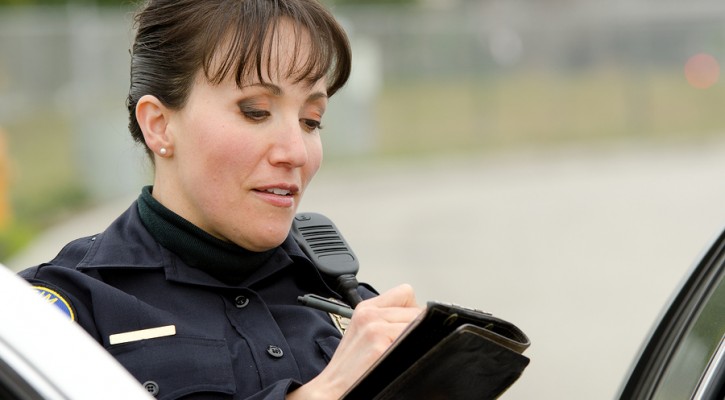Tag Archive: Teen drivers

Parents Notified When Teen Is Pulled Over By Police
April 16, 2014
A statewide program in Michigan notifies parents if their teen (ages 16-21) is pulled over and stopped by law enforcement. Once registered, parents receive a sticker that is placed on the vehicle’s window. If their teen is stopped, the parents will receive a text or email notifying them of the event. So far, Michigan is the only state to have this program but it sounds like a good idea to take nationally. Read more: STOPPED ‘puts parents back in the car

Study Shows That GDL Laws Work; To An Extent
July 30, 2012
A study published in the Journal of the American Medical Association in September 2011 shows that the death rate for teen drivers under the age of 18 has fallen dramatically over the past several years. However, the good news in this study comes with a downside; the rate of fatal crashes for teen drivers over the age of 18 has risen. The reason for the increase isn’t totally certain but there are a couple of factors that some feel have led to the increase.
The Graduated Driving License (GDL) laws are working as they were designed. GDL laws place restrictions on new teen drivers that limit the number of passengers they can carry, the hours that they can drive, and their ability to use cell phones while driving. These laws were designed to limit all of the distractions that lead to so many teen deaths and, according to the researchers, they have resulted in 1,348 fewer crashes among 16 year olds.
Part of the reason for the increase in the death rate for 18 year olds is that they are now free of those restrictions and, with more passengers in the car and the ability to drive late a t night, they may be entering into driving situations that they have never experienced before and are unable to cope with.
Another reason that some experts have noted is that, with the restrictions placed on 16 year olds to complete driver training prior to getting their license, many teens are now waiting until they are 18 before getting a license. At the age of 18, there is often no requirement for any type of formal classroom or behind the wheel training. The requirement to hold a learner’s permit for a year and document up to 50 hours of supervised driving experience is also lifted for 18 year olds.
By waiting until they are 18, these drivers can often get their license in just a few weeks by passing what is generally a pretty easy driving test at the DMV. They are foregoing a lot of good training that teaches them the skills necessary to avoid collisions on the road.
If you have a teen at home that is waiting until age 18, you should insist that he or she still take all of the required courses required of 16 year olds and get at least 50 hours (ten at night) of supervised driving experience before allowing them to get their license.
Prepping for a Homecoming: Communication
September 26, 2011
Here are some tips on exactly what to discuss when prepping for homecoming:
Communicate with other parents; then, talk to your teen about their friends’ parents. Being part of a social group does not guarantee that other parents share the idea of a zero-tolerance policy for alcohol. Some parents even choose to “look the other way” when hosting teen get-togethers, reasoning that at least, the teens are in a “safe” environment. This is illegal in any state. Communicate with these other parents to find out if they know where their teens will be after homecoming night. Even better, if the teens plan to spend time in another teen’s home, find out if the parents are willing to chaperone. Communicate the importance of accounting and locking up alcohol in their homes. When communicating with your teen, make sure that they know that it’s always alright to say “no.” Ask if they will be riding with teens whose parents also have a zero-tolerance policy for alcohol.
Come up with a safety code. This could be something a teen may text their parent if they are in an uncomfortable situation, and they need an exit. Something like a code to signal, “Get me out of here!” On your end, make sure that your teen knows that you will be discrete upon receiving this code. This could also be something that a teen can do to “check in” with their parents. Maybe texting something like, “dinner was awesome!” could mean that the teen has arrived at an after-homecoming destination safely.
Discuss the teen’s planned itinerary for the evening, and require the teen to inform you of any changes. Make teens feel they could trust you not to bug them on homecoming night, if they promise to keep their end of the bargain by checking in and informing you of any changes in the plan.
Doing so will hopefully make homecoming night a “night to remember,” instead of being “the night when my mom bugged me all night, until I got home.” Pre-plan, communicate and have fun!
Ford Driving Clinics Coming to Schools
March 22, 2011
Ford’s Driving Skills for Life, a group focused on teen driving safety will be going around schools to set up driving clinics for teens. Ford DSFL is focused on correcting the most common teen driving mistakes which are; speeding, spacing, vehicle handling, and distractions.
They teach these in their Ford driving clinics through 3 different exercises for teens. The goal is for the teens to experience first-hand how the lack of training or knowledge may lead to disaster down the line. The three exercises are:
- Vehicle handling – In this one, the rear wheels of the car are intentionally loose, causing the vehicle to skid when approaching turns. The goal of this exercise is to teach teens what to do in situations like that.
- Distracted Driving Course – The goal of this is to show that the inside of a vehicle is full of distractions — and ways on how to deal with them while staying focused on driving.
- Impaired Driving Course – Students will be wearing “fatal vision” goggles that impair vision, to show that drivers are not truly able to operate a vehicle under the influence.
The Ford DSFL tour is a 30-city, 15-state driving clinic to be held in high schools. For a full listing of schedules, check out their Ford DSFL Site.
Photo Courtesy of: Ford Driving Skills for Life

5 Teen Driving Safety Tips
January 11, 2011
Tomes can be written about teen driving safety tips but some of the more important ones, are usually the ones that are both the most simple and sometimes-overlooked. Most people know that drinking while driving is never a good idea, regardless of if it is a new driver, or older driver. But there are several other reminders to pass on to family and friends.
Here are a few of the better teen driving safety tips:
Contracts with parents – This is by far the simplest and easiest to do to keep teens safe: maintain a Parent-Teen driving contract or logbook. It could be as simple as a set of dos and don’ts from parents to their teens; along with the appropriate consequences should the teen break any of the terms of agreement. A logbook is helpful to limit access to the vehicle and monitor your teens use and responsibility toward driving and care. Studies show that when teens are not given unlimited access to the vehicle, that they take better care of it and are involved in fewer crashes and receive les tickets. The logbook can be as simple as a teen noting down the times of departure and arrival if the vehicle will be used.
Don’t be a chauffeur – A teen driving safety tip is for teens not to become their friend’s personal driver. Just because a teen is able to drive does not mean they are capable of handling the distraction and responsibility for their passengers. Many states have enacted laws prohibiting learner’s permit holders from having passengers under 21, and for newly licensed drivers limiting passengers as well. More passengers equate to more variables to lose focus on while driving.
Learn from defensive driving, not by driving around – Driver’s education and defensive driving courses are specifically designed to create a controlled environment for new drivers to hone their skills and learn strategies for safe driving. Busy streets are not for learning defensive driving on the fly.
Buckle up! – Teach a teen driver to practice buckling up before even starting the vehicle. Wearing your safety belt reduces your chances of being killed or injured by up to 50 percent. As the driver, it keeps you at wheel and in control of the vehicle, which can help you react to other compounding situations in a crash. For a passenger buckling up reduces their body of being thrown from the vehicle, crashing into the interior of the vehicle or other occupants, and reduces the damage caused internally by the force to their organs. Making a constant habit of buckling up before turning on the ignition will go a long way to ensuring their safety and avoiding a citation.
Distracted Driving Mobile App – Most distracted driving mobile applications are designed to disable a mobile phone’s features while the phone is moving. This is a great way to avoid the temptation to answer the phone or a text while behind the wheel. Another feature for many of these apps is to designate locations through their Global Positioning System (GPS) that are unsafe allowing parents to be notified, should their teen find themselves in those spots.
Vehicle crashes are the number one cause of deaths for teens, make it a priority to raise vehicle safety awareness.
